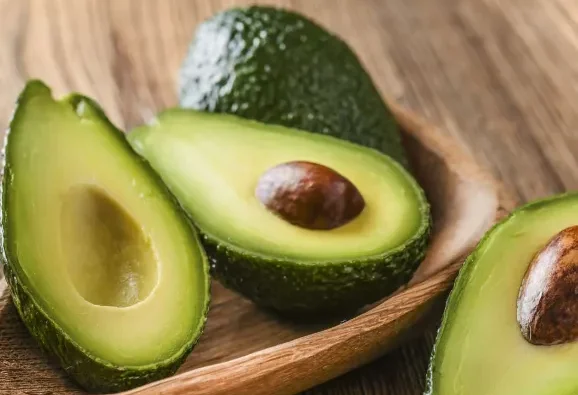The question “Which diet is best for me?” is one that I get asked frequently as a nutritionist. With so many diets out there, it can be overwhelming to know which one to choose. If you’re confused about the different options and how they work, this guide will help clarify things. In this post, we’ll go over the most popular diets, how they differ, and provide tips on how to pick the right one for you. I’ll also offer some insight into what I recommend as a nutritionist and give you a few simple rules for healthy eating.
Popular Diets for Weight Loss and Overall Health
There are plenty of diets out there, but here’s a breakdown of the most common ones that I often get asked about:
- Keto Diet
Focus: High fat, moderate protein, and very low carbs.
Purpose: The goal is to switch the body from burning carbs to burning fat for energy by reaching ketosis. Originally used for medical purposes like epilepsy, it’s now popular for weight loss.
Considerations: While effective for weight loss, keto can be difficult to maintain, and once you return to eating carbs, you might gain weight back. Long-term keto can also result in nutrient deficiencies, especially in fruits and vegetables. - Paleo Diet
Focus: Eating like our Paleolithic ancestors, focusing on whole foods and avoiding processed options.
Purpose: To improve health and lose weight.
Considerations: While the principles are based on whole, natural foods, it’s criticized for excluding some foods that can be beneficial, like legumes. It’s more of a lifestyle than a short-term diet. - Alkaline Diet
Focus: Eating foods that create an alkaline environment in the body, avoiding acidic foods.
Purpose: To maintain a healthy pH balance in the body and reduce inflammation.
Considerations: This diet focuses on plant-based foods and eliminates meat, dairy, and grains. It can be restrictive and difficult to follow long-term but may offer short-term health benefits. - Vegetarian and Vegan Diets
Focus: Vegetarianism excludes animal meat, while veganism avoids all animal products.
Purpose: Often for moral reasons, but also for health benefits, weight loss, and disease prevention.
Considerations: While these diets can be very healthy, they can also be unhealthy if filled with processed foods or if nutritional needs (like protein or B12) aren’t met. - Plant-Based Diet
Focus: Mostly plant-based foods, but more flexible than veganism or vegetarianism.
Purpose: To eat more whole, natural foods and reduce processed foods.
Considerations: This diet allows for some animal products, making it easier to get adequate protein and B vitamins compared to strictly vegan or vegetarian diets. - Carnivore Diet
Focus: Eating only animal products, excluding everything else.
Purpose: Claims to improve health and promote fat loss.
Considerations: This diet lacks essential nutrients and is not recommended for long-term health. It may work for short-term weight loss, but it can lead to nutritional imbalances. - Mediterranean Diet
Focus: Eating a balanced diet of fish, vegetables, fruits, olive oil, whole grains, and limited meat.
Purpose: To promote health, prevent disease, and improve longevity.
Considerations: Based on studies of Mediterranean populations known for their exceptional health, this diet is balanced, easy to maintain, and backed by research. - Low-Carb Diet
Focus: Reducing carbohydrate intake to less than the recommended daily intake.
Purpose: Commonly used for weight loss and health improvement.
Considerations: Carbs are limited, but the diet varies in how much is allowed. It’s important to focus on healthy carbs and avoid junk foods. This can be sustainable if carbs are cycled and carefully planned. - Whole30 Diet
Focus: Eating whole, unprocessed foods and eliminating potentially harmful foods like dairy, sugar, alcohol, and legumes.
Purpose: To reset the body and improve overall health.
Considerations: While it can be restrictive, it is not primarily focused on weight loss. Many use it to identify food sensitivities.
What Does a Nutritionist Recommend?
As a nutritionist, I encourage you to focus on sustainable, long-term eating habits rather than following extreme diets. Most diets share similar principles, but what works best for you depends on your individual needs, health goals, and preferences.
Questions to Ask Before Starting a Diet
Before committing to any diet, take the time to ask yourself these questions:
- Why do I want to change my eating habits?
- Do I really need to follow a strict diet, or should I just make small, healthier changes?
- What is my primary goal? Weight loss, more energy, better skin, athletic performance, disease prevention?
- How is my current health? Are there any conditions or family history that should influence my choices?
- What is realistic for me? Do I have time to plan and prepare meals consistently, or should I start with small changes?
- What aspects of a particular diet appeal to me? Is it the food, the structure, or the results?
Answering these questions will help clarify which approach is best for you.
Do Your Research
Once you have a better understanding of your needs, do thorough research. Read books, scientific articles, and reliable resources to understand the diet you’re considering. Don’t rely solely on social media or short blog posts, as they may not provide the full picture.
The Best Diet for You: A Nutritionist’s Opinion
My advice is simple: don’t focus on a short-term “diet.” Instead, adopt a long-term, sustainable dietary approach. Most diets have overlapping principles, and the key is to focus on eating whole, nutrient-dense foods that nourish your body.
What to Eat for Health and Weight Loss
Here are some key principles for a healthy, balanced diet:
- Eat whole, organic foods like fruits, vegetables, whole grains, and lean proteins.
- Avoid processed foods, which often contain unhealthy fats, sugars, and artificial additives.
- Include a variety of vegetables and fruits in your daily meals.
- Choose healthy fats like olive oil, nuts, seeds, and avocados.
- Opt for organic, grass-fed meats and wild-caught fish when consuming animal products.
- Reduce or eliminate refined sugars and processed carbohydrates.
- Limit alcohol intake, and drink plenty of water.
By following these principles, you can maintain a healthy weight, improve your energy levels, and reduce the risk of chronic diseases. The focus should always be on whole, unprocessed foods, and eating in a way that works for your body and your life.
How to Eat for Success
It’s not just about what you eat, but how you eat. Here are some helpful guidelines:
- Eat intuitively: Listen to your body and eat when you’re hungry. Don’t force yourself to eat when you’re not.
- Don’t overeat: Stop eating when you feel satisfied, not full.
- Eat slowly: Chew thoroughly and take breaks to give your body time to signal when it’s full.
- Drink water: Sometimes thirst is mistaken for hunger, so drink a glass of water before meals.
- Balance your plate: Fill half your plate with vegetables, a quarter with protein, and a quarter with carbs.
By focusing on nutrient-rich foods and eating mindfully, you can lose weight and improve your overall health without the need for drastic calorie cutting.
Final Thoughts
Finding the right dietary approach involves understanding your personal health goals and needs. Take the time to do your research and experiment with different approaches to see what works best for you. The key is to focus on sustainable habits that nourish your body and promote long-term health.











